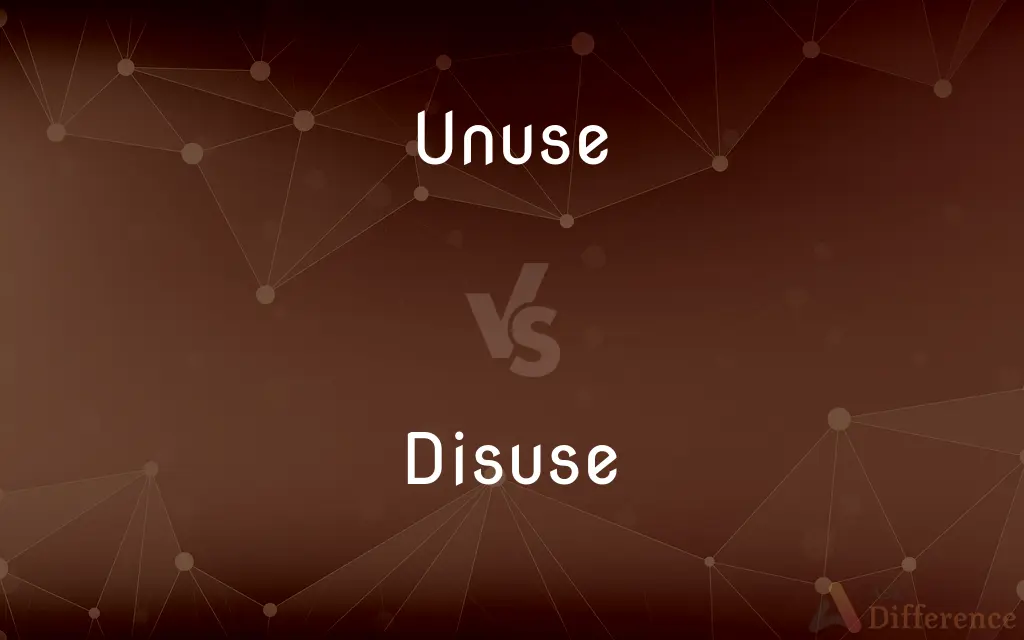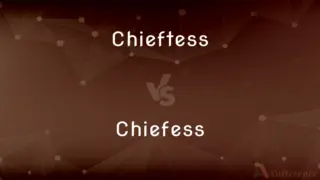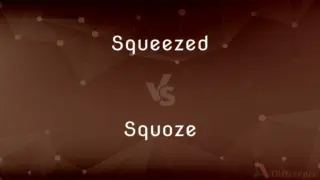Unuse vs. Disuse — What's the Difference?
By Urooj Arif & Fiza Rafique — Updated on March 29, 2024
Unuse refers to the state of not being used anymore, focusing on the transition from use to non-use. Disuse, on the other hand, emphasizes the condition resulting from prolonged non-use, often leading to deterioration.

Difference Between Unuse and Disuse
Table of Contents
ADVERTISEMENT
Key Differences
Unuse is primarily concerned with the act or process of ceasing to use something, highlighting a decision or shift from active usage. Whereas disuse describes the consequence of something not being used over a period, typically leading to decay or obsolescence.
While unuse often implies a recent or deliberate choice to stop using an item, disuse suggests a longer period during which an item has been neglected, with potential implications for its condition or efficacy.
On the other hand, disuse can imply a lack of maintenance or attention, leading to wear, damage, or inefficiency, suggesting that something might not be readily usable without intervention or repair.
Unuse is a more active concept, suggesting a recent decision or change, whereas disuse carries a more passive tone, indicating a state that has developed over time without specific actions taken to prevent it.
Comparison Chart
Focus
Transition from use to non-use
Condition resulting from prolonged non-use
ADVERTISEMENT
Implication
Decision or shift away from using something
Neglect over time leading to potential deterioration
Timeframe
Often implies a recent change
Suggests a longer period of non-use
Condition of the item
May still be in good condition
Likely to have deteriorated or become obsolete
Tone
Active, relating to a decision
Passive, indicating a developed state
Compare with Definitions
Unuse
Ceasing to employ an item for its intended purpose.
The unuse of traditional methods has pushed for technological advancements.
Disuse
A condition of neglect resulting from lack of use.
The machine's disuse made it unreliable and rusty.
Unuse
The period during which something is not being used.
The software's unuse led to its eventual obsolescence.
Disuse
The process by which something becomes obsolete due to non-use.
Printed maps have gone into disuse with the advent of digital navigation.
Unuse
A state where something is no longer in service.
The unuse of the old factory has made it a town landmark.
Disuse
The state of not being used for a long period.
The mansion fell into disuse after the family moved abroad.
Unuse
A temporary halt in the application of a process or tool.
The unuse of the main road due to repairs caused traffic reroutes.
Disuse
A period marked by the absence of activity or operation.
The old library has been in disuse since the new one was built.
Unuse
The act of stopping the use of something.
The unuse of plastic bags has significantly reduced pollution.
Disuse
The decline in efficiency or condition due to not being used.
The athlete's skills went into disuse during the off-season.
Unuse
Disuse
A long period of unuse
Disuse
The state of not being used or of being no longer in use.
Disuse
The state of not being used; neglect.
The garden fell into disuse and became overgrown.
Disuse
(transitive) To cease the use of.
Disuse
To disaccustom.
He was disused to hard work.
Disuse
To cease to use; to discontinue the practice of.
Disuse
To disaccustom; - with to or from; as, disused to toil.
Disuse
Cessation of use, practice, or exercise; inusitation; desuetude; as, the limbs lose their strength by disuse.
The disuse of the tongue in the only . . . remedy.
Church discipline then fell into disuse.
Disuse
The state of something that has been unused and neglected;
The house was in a terrible state of neglect
Common Curiosities
Can something return to use after being in unuse or disuse?
Yes, items can be brought back into use after periods of unuse or disuse, though disuse may require more effort to restore functionality.
What are the signs of disuse?
Signs include wear, rust, inefficiency, and obsolescence.
How does disuse affect the condition of items?
Disuse can lead to deterioration, as lack of use often results in neglect and the absence of maintenance, making items less efficient or functional.
Does unuse always lead to disuse?
Not necessarily. Unuse may be temporary and not lead to the neglect or deterioration associated with disuse.
Is unuse a conscious decision?
Yes, unuse typically involves a conscious choice to stop using something.
How can the effects of disuse be mitigated?
Regular maintenance and periodic use can prevent the negative effects of disuse.
Can disuse be beneficial?
In some cases, disuse can lead to preservation or provide an opportunity for repurposing.
What causes unuse?
Unuse is typically caused by a deliberate decision to cease using something, often due to obsolescence, replacement, or change in needs.
What role does technology play in the unuse of items?
Technological advancements often render older tools or methods obsolete, leading to their unuse.
What is the difference between disuse and obsolescence?
Disuse refers to the lack of use leading to deterioration, while obsolescence means something is no longer efficient or desirable due to advancements.
How do economic factors influence unuse and disuse?
Economic changes can render products unaffordable or irrelevant, leading to their unuse or disuse.
How do unuse and disuse affect resource allocation?
They can lead to the reallocation of resources towards more relevant or efficient alternatives.
How does unuse impact the environment?
The unuse of harmful products or practices can have a positive environmental impact.
Can cultural changes lead to unuse?
Yes, shifts in cultural practices or values can lead to the unuse of certain items or traditions.
What is the impact of disuse on historical sites?
Disuse can lead to the deterioration of historical sites, but it can also preserve them from modern alterations.
Share Your Discovery

Previous Comparison
Chieftess vs. Chiefess
Next Comparison
Squeezed vs. SquozeAuthor Spotlight
Written by
Urooj ArifUrooj is a skilled content writer at Ask Difference, known for her exceptional ability to simplify complex topics into engaging and informative content. With a passion for research and a flair for clear, concise writing, she consistently delivers articles that resonate with our diverse audience.
Co-written by
Fiza RafiqueFiza Rafique is a skilled content writer at AskDifference.com, where she meticulously refines and enhances written pieces. Drawing from her vast editorial expertise, Fiza ensures clarity, accuracy, and precision in every article. Passionate about language, she continually seeks to elevate the quality of content for readers worldwide.
















































